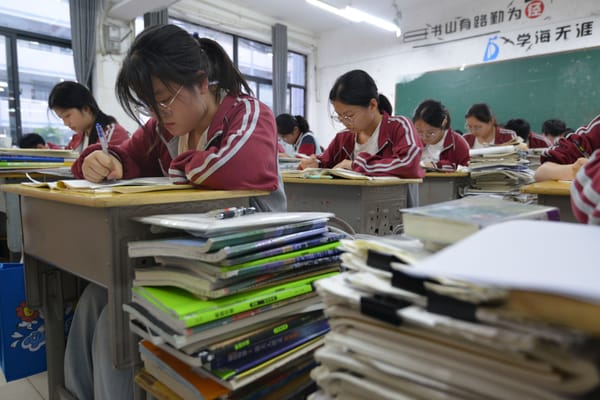The Highest Exam: How the Gaokao Shapes China
By Ruixue Jia and Hongbin Li with Claire Cousineau
Harvard, 256 pages, $29.95
In July 2021, the Chinese government introduced a sweeping ban on most forms of after-school tutoring. For-profit tutoring in core subjects was banned outright, and non-profit tutoring companies were prohibited from conducting classes after 9 p.m. or on weekends and holidays. Public advertisements for tutoring services were also banned.
The effect was immediate and dramatic. Two-thirds of the people employed in after-school education were thrown out of work, an estimated 10 million people. In Jiangsu province, the number of after-school tutoring firms dropped from 9,000 to 205. Authorities raided classrooms to shut down illicit tutoring being conducted under the guise of “consulting” or “logical thinking.” The share price of tutoring companies like New Oriental Education Technology Group, listed on the New York Stock Exchange, fell more than 80 percent almost overnight.
The purpose of the ban was to ease pressure on students. The Chinese word neijuan, literally “inward rolling,” describes pointless competition that grows ever more demanding without making anyone better off. Authorities believed that education was becoming like that, shackling students to their desks and draining their parents’ resources without actually making anyone smarter. Competition had long since reached the point of diminishing returns and was even doing more harm than good.
“The tutoring industry has proven resilient.”
The ban is still in place, but the tutoring industry has proven resilient. Tutoring has moved underground. Classes are smaller or one-on-one to avoid detection by authorities. Smaller classes are more expensive, with the price of sessions reportedly doubling in some cities. Why do parents pay these higher prices and students continue to submit to this grim slog? Because life outcomes in China are determined by high-stakes testing and by one high-stakes test in particular: the gaokao.
